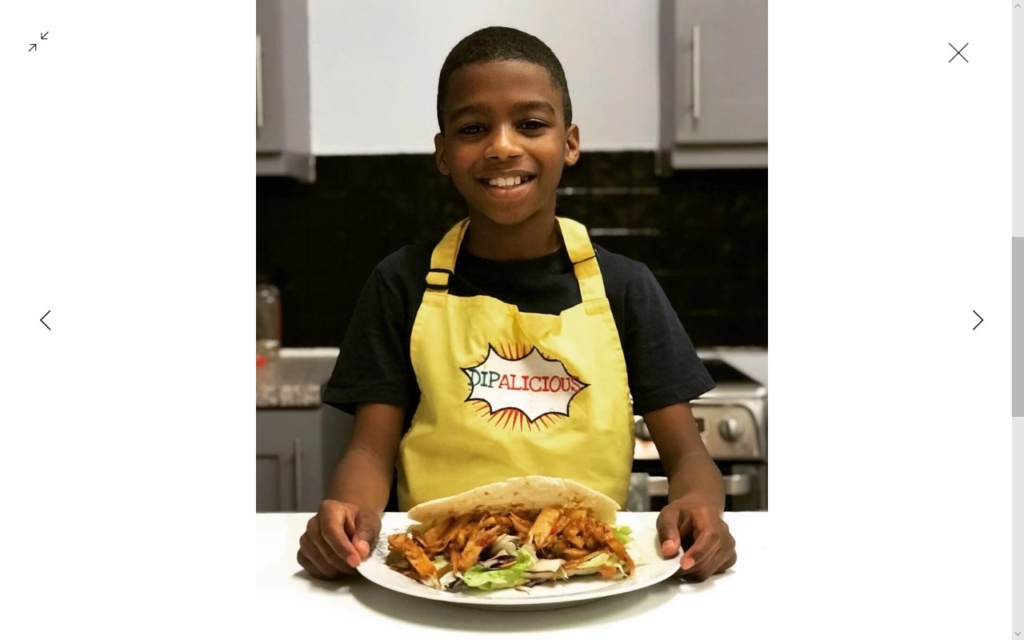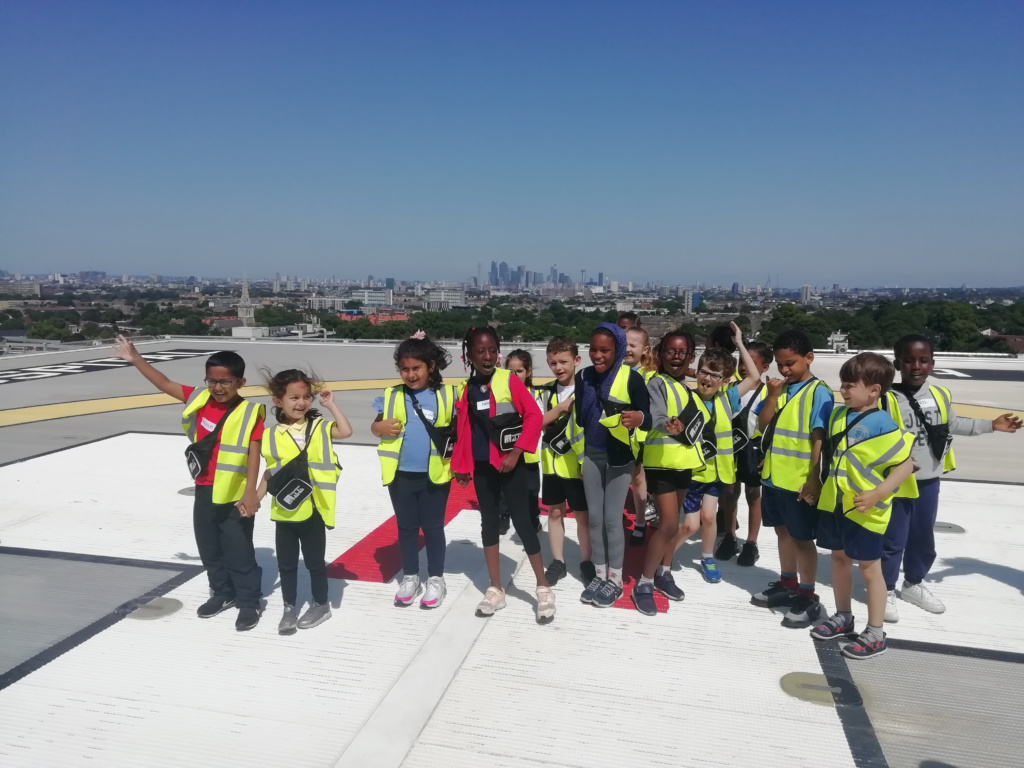
‘I’m not special,’ said Omari McQueen. ‘Well, I am special to my mum and dad.’ In fact, Omari, who lives in Peckham, is special to many people. At the age of 11 he is the world’s youngest restauranteur. He has founded his own company Dipalicious that produces vegan dips and meals and has his own cooking show on YouTube https://www.youtube.com/watch?v=aPwBmP_P38s and entertained an audience of well over 100 adults at the Bett Show in January.
Not every child is as outgoing and entrepreneurial as Omari. But now that the government is committed to rolling out careers-related learning to all primary schools we may see lots more Omaris turning a passion into a business alongside their SATS.
Social mobility
Last summer the government announced 15 providers would benefit from new funding of £2m for projects aimed at primary school children https://www.careersandenterprise.co.uk/news/boost-primary-school-careers-education. Motivating their decision in part is concern that social mobility has stalled. This means that the UK is getting poorer in every sense, including a narrowing of children’s horizons.
The ‘northern wall’ became a key feature of election coverage. But far from being a soundbite, its roots were well developed long before that. Theresa May’s social mobility committee walked out in frustration at the lack of progress at the end of 2017. A report published by the new committee in April 2019 claimed: ‘Inequality is now entrenched from birth to work with social mobility stagnating at virtually all life stages.’ Published to coincide with the first anniversary of the new commission, the poll reveals deep unease in many regions about whether people have the same access to good education, jobs and housing as those living in the south.
In a separate poll in 2019, almost twice as many people felt it was becoming harder rather than easier to move up in society. The social mobility barometer, a poll of just under 5,000 people carried out by YouGov, found that more than half (52%) of those questioned felt the government was not doing enough to help the least well-off. There were strong regional differences. Just 31% of people living in the north-east and 48% of those in the north-west thought there were good opportunities to make progress in their own region, compared with 74% in the south-east and 78% of Londoners.
Other factors are also in play. The social mobility report shows that children from less well-off families will imagine themselves in jobs that are neither exciting nor well-paid. However, primary teachers with a class of wannabe professional footballers and astronauts may well dispute this finding.
Support from Primary Futures
John Snell, head of Welton Primary School in Midsomer Norton, Somerset attended Omari’s presentation at Bett. He is a fan of Primary Futures, an organisation that links up schools with volunteers who can talk knowledgeably and with enthusiasm about their jobs.
‘We start introducing the idea of careers in reception class,’ said John. ‘There has always been careers education in secondary but at the age of 13/14 children are not in their prime of life. Some are disaffected or depressed and many teenagers have no real sense of purpose. It’s too late by then.’
His part of the world was originally a mining community but these days there is no single dominant industry. He has been focusing on careers for four years and takes a two -pronged approach. He encourages children to study the opportunities available locally. A vet, and a landscape gardener have visited the school to talk about their work. John also brings in volunteers via Primary Futures who are working in jobs that would not normally be on young children’s horizons.
Often there is a theme to Welton’s careers work. In the first year they did Working Outdoors and found out about jobs such as windfarms and farming. This year they focused on Foundation curriculum subjects and met someone from the Crown Prosecution Service and an architect, amongst others.
A nuclear submariner visits
Sometimes there is that lightbulb moment. When they focused on STEM careers, a nuclear submariner shared his experiences with the children. One girl in year four who spoke very little English was so fired up by his talk she went home and asked her parents to buy her a construction kit for a robot arm. Her dad built her a little workbench and she produced a professional looking video complete with commentary which she presented in assembly. Now she is hooked on science and technology and wants to be an astronaut.
The work at Welton Primary School received national recognition when it was one of six schools invited to meet the Prime Minister in January 2020. One pupil asked Boris Johnson if he felt children in primary schools were being properly prepared for the future. When they left, the boy pointed out: ‘He didn’t answer my question Mr Snell!’

Dream Big
The National Literacy Trust is running the Words for Work: Dream Big project. This aims to develop literacy skills, raise aspirations and challenge stereotypes. They have drawn on research from the Drawing the Future report In 2017. This showed that by the age of 7 children’s aspirations are shaped by gender-related stereotypes. Boys looked to traditionally male dominated professions while girls were attracted to more nurturing and caring related roles.
Sixty schools are signed up to the current round. It started September 2019 and they are working through the project’s three stages:
- Visit to a workplace – pupils spend a morning being detectives finding out ‘what the adults do all day’
- Organise around six careers to bring to life in their classroom through a day of role-play
- Dream Big celebration – parents come into school to find out more about career-related learning and to celebrate their child’s work
Visiting King’s College Hospital NHS Foundation Trust
A class from Comber Grove Primary in Camberwell, visited King’s College Hospital. They enjoyed an afternoon of careers exploration and story telling, but it was not all about doctors and nurses. Instead, they met employees working in security, catering, infection control, anaesthesiology and radiology.
The children learnt about different diets, meal preparation and how to wash their hands properly. They also enjoyed seeing the equipment in action, from the bank of screens in the security office to watching a camera pass through a dummy taking pictures. The class finished off by going up to the helipad. Here they had a view across London and some children could even spot the blocks of flats where they lived.
Back at school the following week the class wrote thank you letters to King’s College Hospital: ‘Thank you for letting us visit,’ wrote one child. ‘I like the cichin and reading the book. Also I like it when we saw the sik people.’
They also received their ‘Dream Big box’. This included bags with backdrops, props, books, literacy activities pl;usdressing up items related to careers as supermarket managers, architects, chefs, scientists, journalists and doctors.
Showcasing new careers knowledge back at school
The children spent a day exploring different jobs through role play and fun literacy activities. They wrote prescriptions as doctors, recipes as chefs and receipts for customers, bringing literacy and the world of work to life. At the end of the programme, children put their speaking skills into action. They presented their work to their parents and carers at a celebration event in school where the parents had a chance to see the career themed books:
- Pirates in the Supermarket by Timothy Knapman and illustrated by Sarah Warburton
- Iggy Peck Architect by Andrea Beaty and David Roberts and illustrated by Chad W. Beckerman
- Izzy Gizmo by Pip Jones and illustrated by Sara Ogilvie
- Ralph Tells a Story by Abby Hanlon
- Busy People: Doctor by Lucy George and illustrated by Andotwin
- The Great Dragon Bake Off by Nicola O’Byrne
Alice Handelman-Pedroza, Senior Project Manager, Words for Work at the National Literacy Trust said, ‘The visits open up the world of work to children. They get a first glimpse of the range of jobs that are out there. It also gives a context for their literacy skills, so they realise that these are skills that adults need and use every day at work and not just something children do at school.’
Sal McKeown is commissioning editor for Digital Learning magazine
Register for free
No Credit Card required
- Register for free
- Free TeachingTimes Report every month